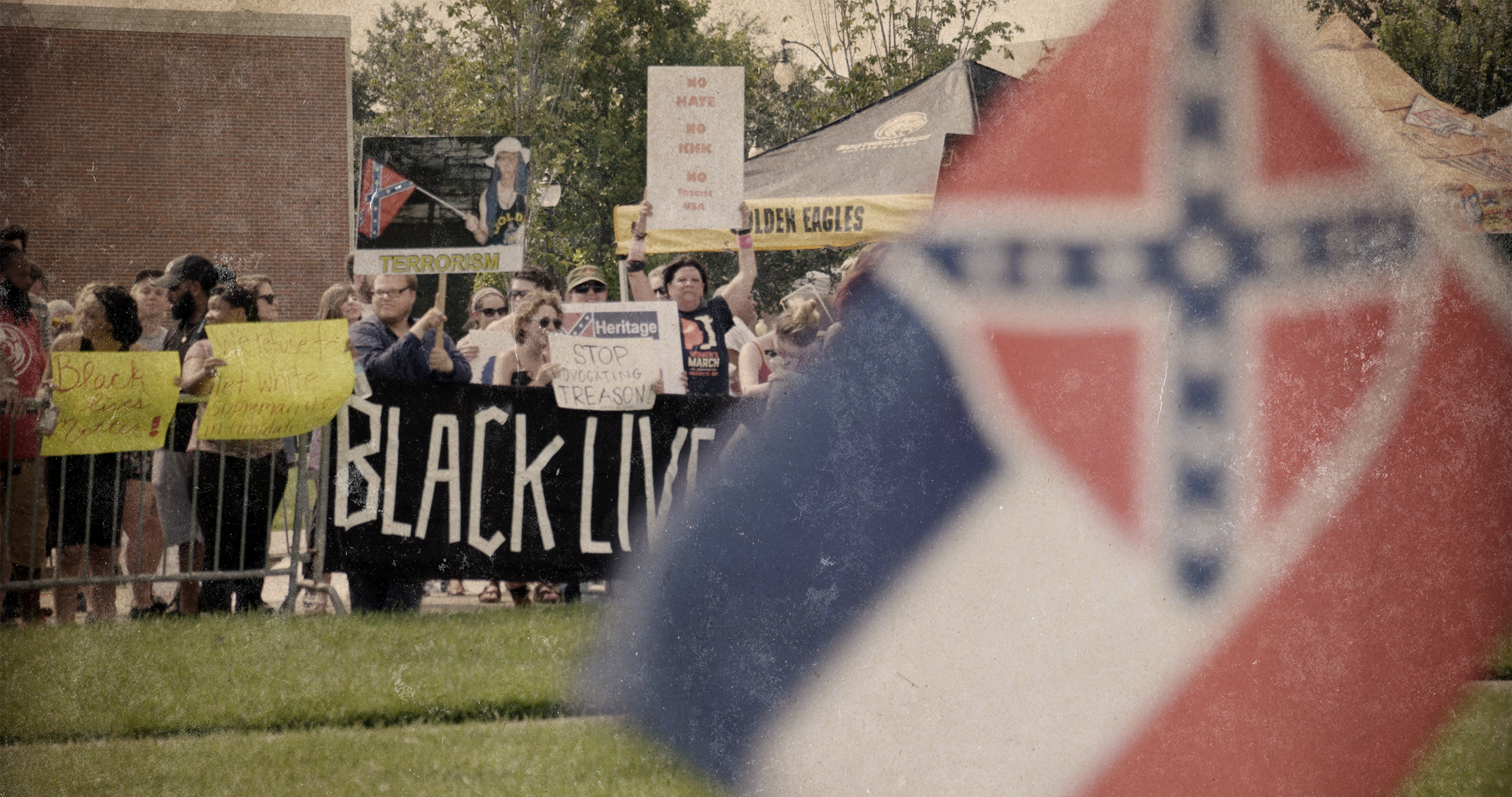Look Away, Look Away
Did the changing cultural understanding of any song better underscore the historical backdrop of a region than ‘Dixie’ the minstrel stalwart of an age that never existed transformed into Confederate battle cry transformed into paean for a bygone age (that never existed) transformed into a reminder of our worst misdeeds? Did the changing cultural understanding of the Mississippi state flag better underscore the historical backdrop of a region better? Director Patrick O’Connor is betting the answer to both questions is ‘no’ in his chronicle of the movement to replace the Mississippi flag, which openly contains the Confederate flag within it, with something more unifying and suited to the modern moment.
Following the rise of both the Black Lives Matter movement and an acceleration of violence against people of color (Look Away begins with the Dylann Roof killings in nearby South Caroline and the South Carolina government reaction), calls for change within the Mississippi government begin – specifically calls to change the state flag for something less divisive. Citizens and politicians from across the Mississippi landscape soon appear petitioning the government for change and offering up new options which remove the old symbol of racial oppression. Because it is a cultural moment and a moment of profound cultural change, reactionary forces soon appear as well claiming history and the need for remembrance. Community gatherings and meetings quickly ratchet up in tension as opposing cultural sides come face to face to yell and scream arguments and epithets at one another before finally, ultimately giving in to the popular will. It is simultaneously a reflection, an indictment and hopeful rumination on the American experiment.
“Look away, look away, look away, Dixie Land,” Daniel Emmett’s standard exclaims and that is exactly what Dixie Land tries to do, for as long as possible. While writer / director O’Connor tries to give as much space as possible to all of the different sides involved there is a tilt towards one side, not with judgment but merely presenting their words without comment. When various defenders of the status quo have the reality of the Mississippi flag and its Confederate emblems brought up to them they quickly attempt to change the subject, declaring a care only for their history or defining symbols not being connected at all to the things they are best known for. At its worst opposition to the changes coming evolves to multiple levels of whataboutism as public officials tie in all of the cultural changes they are confronting as part of one great assault on the land they have known. It’s possible there is a group supporting the old flag with more self-awareness the individuals who poke and prod and confront in Look Away, but if they exist they haven’t made their faces known.
That said, if the film was focused on that element alone it would become the tiresome polemic some of its subjects decry it as. O’Connor, though definitely with a point of view, makes sure to turn away from his prime story and focus on all of the tangentials which give the argument meaning. What is a flag and why does it mean something? What are the elements of a good flag and why can the state do better than it has to date? How does all of this fit in with the larger cultural context of Confederate monuments being pulled down throughout the country and the problems of the Civil War still not behind the country 150 years later? What does this mean for the country going forward?
There are no easy answers to any of these questions and O’Connor - for better or worse – does not offer any. He focuses narrowly on the main events playing out in front of him and the handful of clear personalities taking part in it, as self-aware (or not) as they may be. In the process he offers something like catharsis that things can change – offering hope to some and denying it to others. That catharsis is not tied into any larger elements of similar arguments going on nationwide – Look Away is universal in its specificity – which may in the long run limit how much anyone can take from it. But taken within itself it gives us some reason to hope.



